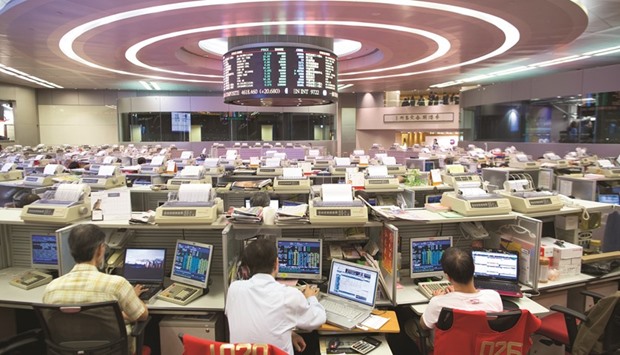Asian markets rallied and the dollar extended losses yesterday after Federal Reserve boss Janet Yellen struck a cautious note on the global economy that lessened the prospects of an interest rate rise any time soon.
A better-than-expected reading on US growth and other improved data recently had raised hopes that the global turmoil at the start of the year may have ended, and fuelled talk that the central bank might consider a further tightening of borrowing costs.
However, while Yellen pointed out that the world’s top economy had “proven remarkably resilient” in the face of a global slowdown—particularly in China—and plunging oil prices, she took a dovish stance on monetary policy this year.
Job creation remains strong and other signs of growth firm, even as US manufacturing industry has been hit by the strong dollar and the sharp contraction in the oil and gas industry, Yellen said.
But she added that even if the US maintains a moderate growth rate, the Fed must heed “broader concerns about global financial developments”, including oil prices and the overall pace of growth.
She also rejected arguments, including from some Fed officials, that inflation has increased to the point that policymakers must raise rates sooner rather than later.
Analysts said her comments all but ended any chance of another rate rise at April’s policy meeting, while expectations for a June move were also lower.
The news put a fire under stock markets, with all three main indexes in New York rallying and the gains continuing in Asia.
Hong Kong jumped 2.2% and Shanghai surged 2.8% by the close. Sydney added 0.1%, Singapore rallied 1.6% in late trade and Seoul closed 0.4% higher.
There were also healthy gains in Wellington, Taipei, Manila and Jakarta. “For the first time in a long time, Janet Yellen speaks and markets go up,” Niv Dagan, executive director at Peak Asset Management in Melbourne, told Bloomberg News. “It is clear that US interest rates won’t rise any time soon.”
With the prospect of US rates remaining low for some time traders moved out of the dollar, sending it tumbling against the yen, which in turn hit Japanese exporters. The Nikkei index in Tokyo ended 1.3% lower.
The greenback was at ¥112.35 yesterday while the euro rose to $1.1311. That compares with ¥113.68 and $1.1180 in Asian trade earlier Tuesday before Yellen spoke. The dollar was also lower against emerging-market currencies, with its Australian counterpart more than 1% higher, the Korean won up 0.8% and the Malaysian ringgit 0.8% higher.
In Tokyo troubled auto parts supplier Takata plunged almost 20% on the Topix index after a report that it faces costs of up to $24bn over the recall of cars fitted with its airbags. The Topix ended 1.6% lower.
Bloomberg News cited a source as saying the company estimated the “worst case” scenario would involve the recall of 287.5mn airbag inflators.
The firm is struggling to deal with the inflator defect that can cause airbags to deploy with explosive force, sending metal and plastic shrapnel hurtling toward drivers and passengers—in some cases killing them or causing serious injuries.
Oil prices also benefited from the weaker US unit as it makes the commodity cheaper for holders of other currencies. West Texas Intermediate added 1.4% and Brent was 0.9% up.
However, the black gold is down from peaks above $40 earlier this month owing to ongoing worries about a supply glut and overproduction.
In Tokyo, the Nikkei 225 down 1.3% at 16,878.96 points; Shanghai – Composite up 2.8% at 3,000.64 points and Hong Kong - Hang Seng up 2.2% at 20,803.39 points at the close yesterday.

Traders work at the Hong Kong Stock Exchange. The Hang Seng closed up 2.2% to 20,803.39 points yesterday.
